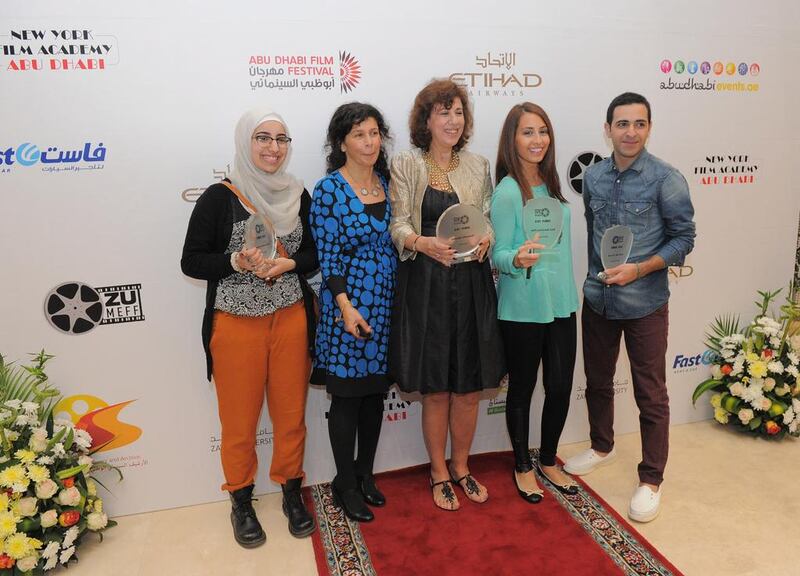The fifth edition of the Zayed University Middle East Film Festival is set to launch at the university at noon this Tuesday, May 6.
This year’s festival attracted 125 submissions from student filmmakers all around the Middle East, and even from Arab students as far afield as the US and England. The submissions have now been cut down to around 30 films which will screen over two days at the university.
Organised entirely by students from Zayed University’s department of communications and media, the festival was originally set up by two students as a graduation project. The theme of student organisation continues to the this day, with everything from gathering submissions to selecting the successful films and getting audiences into the event the sole responsibility of students. We caught up with one student, Rakan Zainal, who is working on the marketing side of this year’s event, to learn a bit more about ZUMEFF 2014.
“It’s the first time I’ve worked on the event, and it’s really hard work. I’m responsible for audience recruitment and promotion. Before I studied here I was a student in the US, and it does seem much easier to get audiences interested in this kind of thing there,” Zainal says.
“We target the festival at students, although it’s not only open to students and one great thing about this festival is that the rules state that this has to be the first festival these films are submitted to, and they can’t be put on YouTube or anywhere like that first, so everything audiences see at ZUMEFF is totally fresh content.”
Turning to the subject of this year's entries, Zainal is confident there are some real standout films on offer: "I've watched a few of the films and I have to say Memex is great. It's a Lebanese-based movie, shot in a really unique way and tells the story really well. There's also a great film made by a student from right here at Sheikh Zayed University — Lulu: A Pearl's Story, and plenty more too."
Looking at the current state of filmmaking in the region, Zainal says: “I honestly applaud so many people that are trying to get into film and create a diverse industry. I do wish there were more facilities and better equipment, but we make the best we can with what we have.” He adds: “I did have an interview at twofour54 recently, and was really impressed by how positively they talked about getting young people involved with film.
“It’s worth reminding viewers that Zayed University is a segregated university, so we have separate screenings for men and women. This year’s festival is actually slightly smaller than last year’s as the university wanted to focus on films that have academic value, but I promise that even though there may be slightly less films, the quality is excellent.”
* For the full screening schedule, visit www.zumeff.com
Rakan Zainal on this year’s ZUMEFF finalists:
Animation
House: a Palestinian animation film who's theme discusses oppression.
Canvas on Mixed Media: the theme will be evolving around Syria.
Raise Your Voice: a Palestinian movie discussing the corruption in distributing scholarships.
Documentary
Burhan Kashour: a documentary from about a struggling rapper from Jerusalem.
Lulu — A Pearl's Story: A UAE film covering the UAE's pearl trade.
Shadow of a Man: An Egyptian documentary regarding how women take the roles of men in society.
Six Fingers: A Palestinian documentary showing how a mother takes care of her special-needs child during the war in Palestine.
Temsah: A Qatari documentary showing the daily exploits of a Qatari artist.
Wounded Identity: A documentary from Yemen showing how the struggle in Yemen is heart-aching and acts as a cry for help to the world.
Narrative
After Greetings: Discusses poverty and overworking in Egypt.
Et Je Vole: A Lebanese film that details a charming young girl and her daily exploits.
I Don't Understand: A UAE film that asks questions without answering them, questions that need answers to.
Memex: Lebanon. A long time ago, Charles I decided to collect all the books around the world and put it in one place. This new place became the world's main research centre. He called it Memex.





